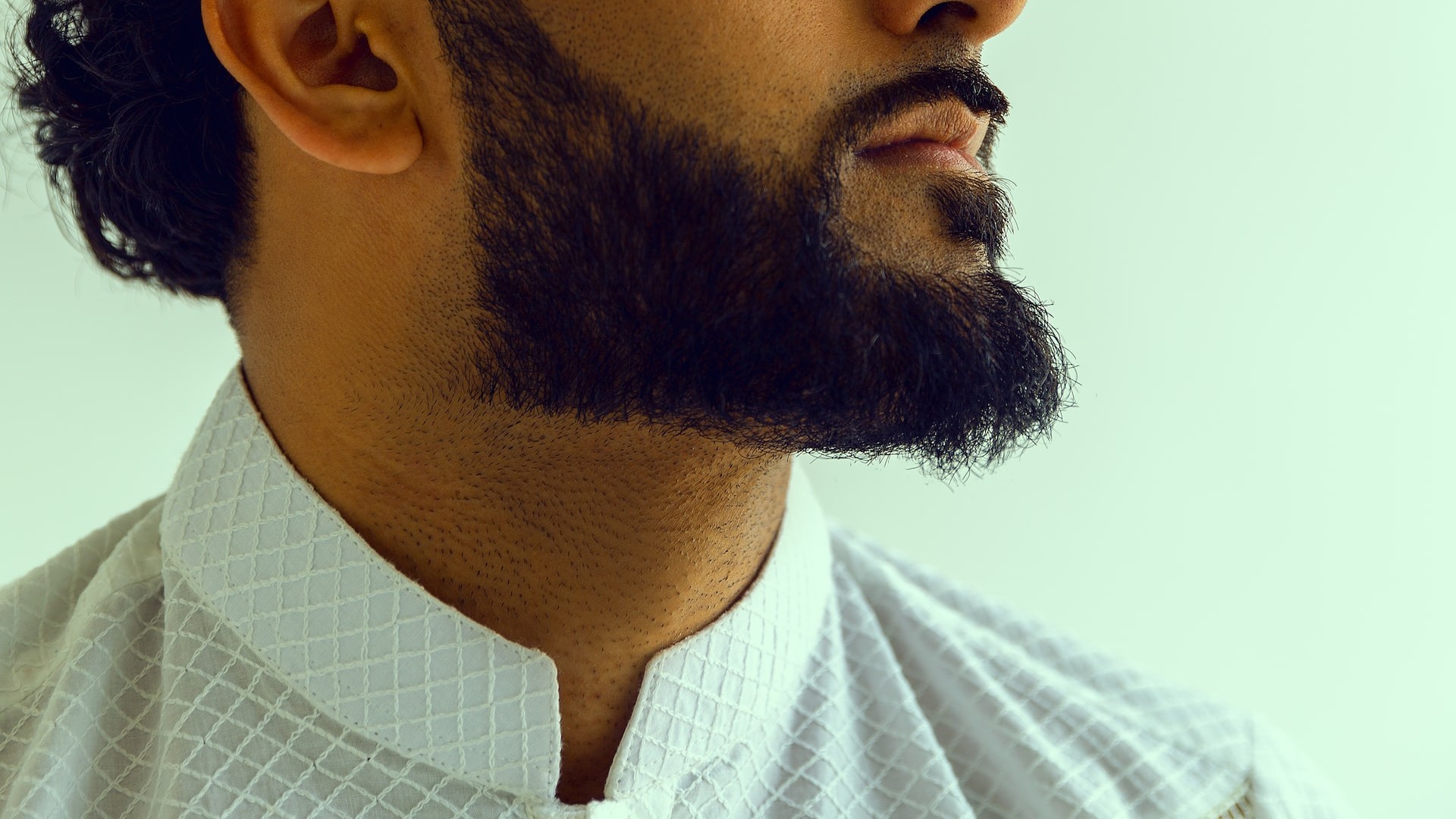A Formulate user who requested to remain anonymous wrote to us with the following question:
I get a lot of pimples underneath my beard. It's kind of gross. I don't get very much acne anywhere else, just under my beard. But maybe that's not saying much, since my beard does occupy a good deal of the real estate of my face. But I get pimples all over under my beard. You can't see it very well, thankfully, since my beard is really full. But is it common for people to get beard acne, and why does it happen? How can I make it better? Is it my beard that's causing the acne, or is it just naturally happening on my chin and neck, and would occur regardless of if I have a beard? Also how can I shave without making it worse?
Thanks for writing! To answer your questions, we consulted three dermatologists. Dr. Harikiran Chekuri is a plastic surgeon, general surgeon, and hair transplant specialist. Dr. Alpana Mohta is a dermatologist, cosmetologist, trichologist, and venereologist. Dr. Anna Chacon is a teledermatologist working out of 50 states.
Why do some people get beard acne?
Dr. Harikiran: Acne can occur on the face and neck due to a combination of factors, including hormones, genetic disposition, stress, shaving, and friction from clothing. People with beard acne may also have seborrheic dermatitis, which is a condition that causes redness, flaking, and inflammation.
Dr. Mohta: Just like the rest of our face, the beard area is rich in sebum-producing pilosebaceous units. A pilosebaceous unit consists of a sebaceous gland and a hair follicle. In patients with oily skin who are prone to developing acne, there is inflammation or blockage of these pilosebaceous units. A bacteria called Propionibacterium acnes (P.acnes) infects these blocked units and leads to the formation of acne vulgaris or pimples). When the hair follicles become blocked, it can cause inflammation and lead to pimples.
What are the best practices for dealing with beard acne?
Wash your face twice a day...
Dr. Harikiran: Washing the face twice daily with a mild anti-acne soap or cleanser can help reduce the buildup of oil and bacteria. If you don't clean your face and beard regularly, dirt and oil can build up and lead to acne. The best way to prevent beard acne is to practice good hygiene.
..without harsh scrubbing
Dr. Mohta: You should avoid using harsh chemicals or scrubbing your face too vigorously, as this can irritate the skin and make acne worse.
Spot treat beard acne
Dr. Mohta: If you do get pimples, you can try treating them with a spot treatment containing benzoyl peroxide, and salicylic acid.
Apply a warm compress
Dr. Mohta: You can also try using a warm compress to help reduce inflammation.
See a derm
Dr. Mohta: If your acne is severe, you may need to see a dermatologist for further treatment. Your dermatologist might prescribe adapalene, tretinoin, or a chemical peel depending upon the severity of the acne. Topical antibiotics prescribed by dermatologists are also helpful in preventing the further spread of infection.
Brush your beard
Dr. Chacon: Remember to brush through your beard to avoid clumping of products in a certain area. This will also help in detangling your beard which is helpful in preventing ingrown hair.
Does facial hair cause acne?
Dr. Harikiran: Facial hair itself does not cause acne, but it can aggravate existing acne. The hair can trap oil and bacteria against the skin, which can lead to breakouts.
Dr. Mohta: Since the beard area is covered with hair, the site stays warm and humid which helps in the growth of P.acne.
Dr. Chacon: Beard acne can occur because of ingrown hairs - this is when your hair gets trapped underneath the skin. It will eventually lead to inflammation. Obviously, hair is needed for this type of inflammation to occur.
Are there ways you can have or remove facial hair without triggering beard acne?
Dr. Mohta: Patients with recurrent folliculitis and pustules on the beard area must refrain from the practice of shaving. It is better to use a beard trimmer instead.
Dr. Chacon: When it comes to removing facial hair it is important to always be gentle to avoid irritation. Irritation can often result in breakouts. The best way to remove hair with minimal irritation is threading and waxing.
Dr. Harikiran: If you are concerned about potential side effects, you should speak with a dermatologist before trying any new method of hair removal.
If you have to shave, how can you avoid worsening beard acne?
Dr. Chacon: When it comes to shaving, thoroughly moisturize your face before you shave. Practice a good shaving technique by changing out your blades regularly, use fewer and gentler strokes, avoid shaving against the grain, and utilize pre-shaving products as well. Also, shaving after showering instead of before can help a lot in preventing beard acne, since the skin is fully clean. If beard acne continues to appear despite these, do not hesitate to consult a dermatologist.
Dr. Mohta: People who are used to shaving their beard opposite to the direction of their hair also develop beard acne, because it pushes the hair inwards and back into the follicular opening, which leads to its inflammation.
Dr. Harikiran: You should also avoid shaving too close to the skin. Using a sharp razor is helpful.
Wanna learn more about the world of skin and hair care? Here's your next read:
Frizzy Curly Hair Care 101
How to defrizz your curls and get 'em back into shape!
Hot Rollers Vs. Curling Irons
What's the difference between hot rollers and curling irons?
Difference Between a Mole and a Freckle
What's the difference between a mole and a freckle?
Moisturizer vs Lotion: What's the difference?
Can you use body lotion on your face?
Tips For Washing Hair In Hard Water
This is your guide to washing your hair in hard water
Minimalist Hair
Welcome to the wonderful world of minimalist hair
Type of Combs: Materials and Shapes
Your complete guide to picking out a comb


